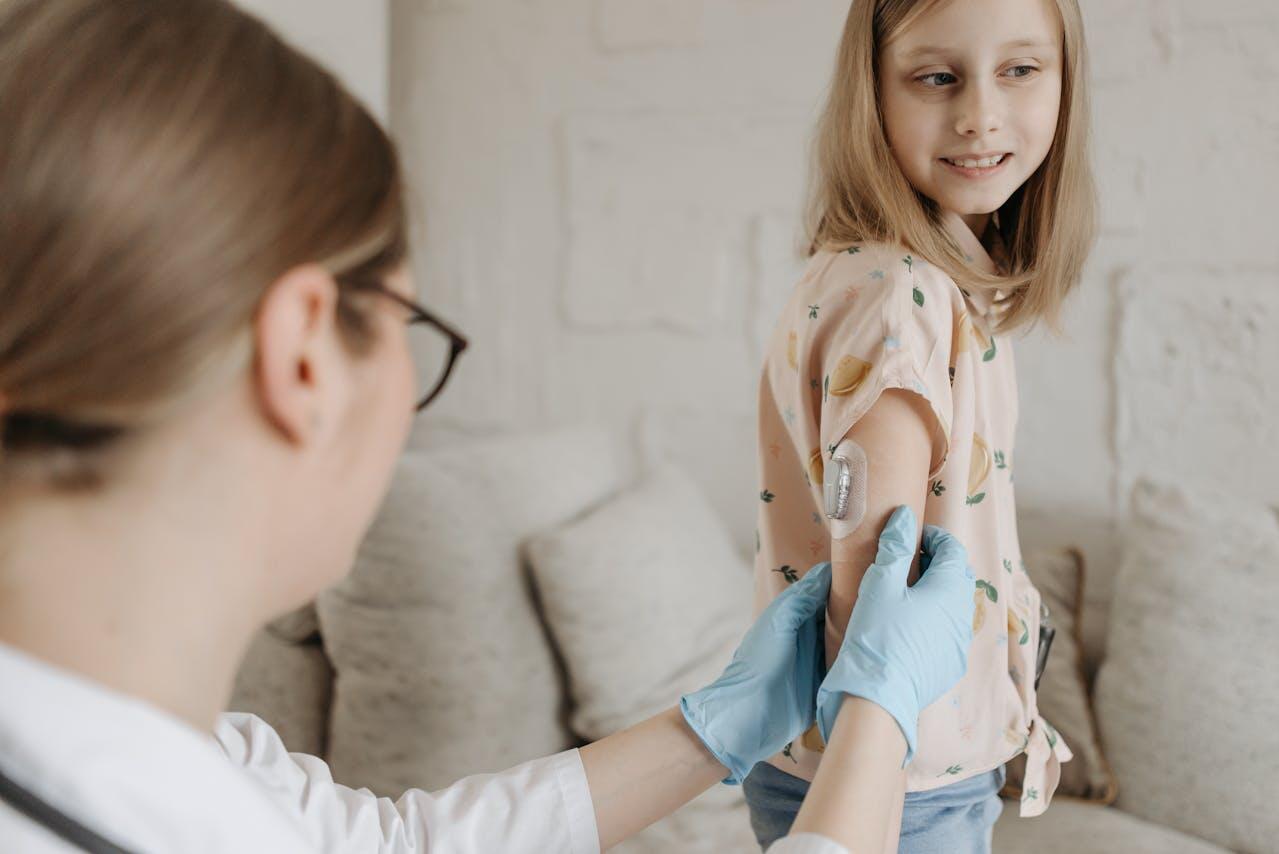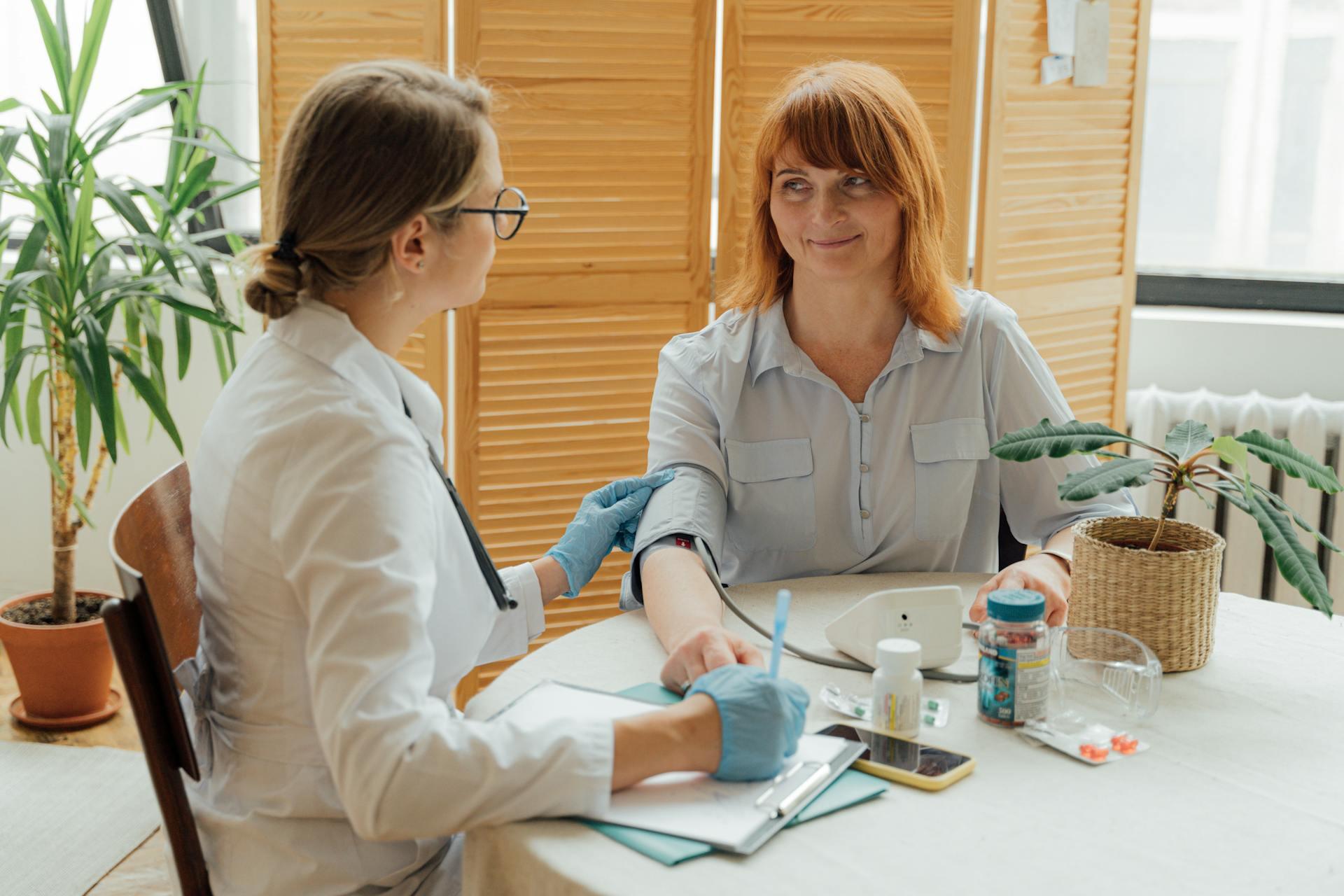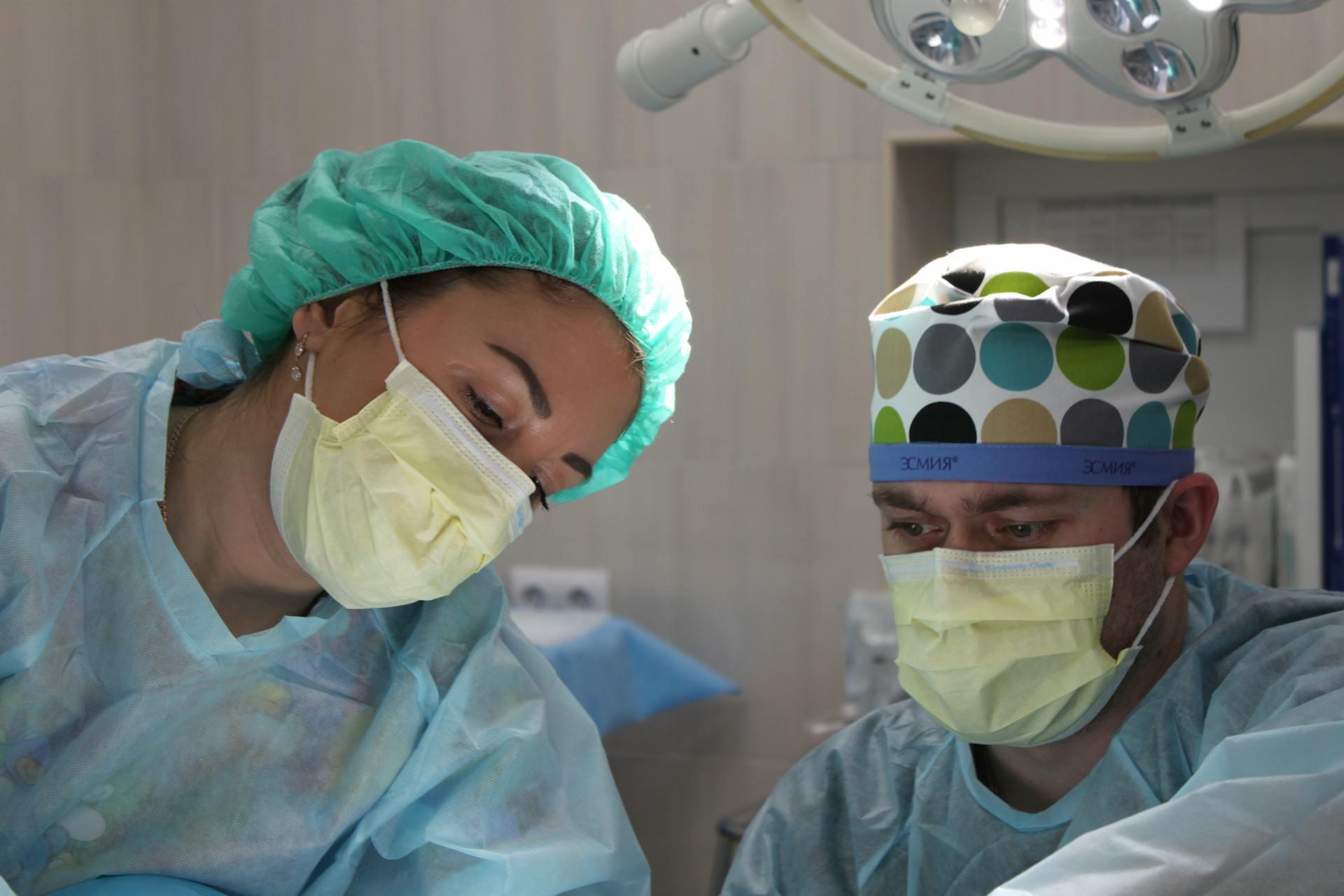Nursing is one of the most vital roles within the NHS and a top choice for those seeking a career that's both demanding and deeply rewarding. However, in order to successfully become a qualified nurse in the UK, there's a certain process students need to follow. This includes earning the right qualifications, completing an approved training programme, and registering with the Nursing and Midwifery Council (NMC). Don't let this dissuade you though! Thousands of people qualify as new nurses each and every year. In the following guide, we'll take a look at the qualifications, training, and career steps involved in becoming a nurse in the UK. Keep reading to learn more!
Key Takeaways
- Qualfications needed: 4-5 GCSEs including English, Maths, and Science + Level 3 Qualifications
- Main route: a 3 year university degree in one of four nursing fields
- Alternative paths: Nursing associate or Registered Nurse Degree Apprenticeship (RDNA)
- Registration: Before you can practice you must register with the Nursing and Midwifery Council (NMC)

What Qualifications Do You Need to Become a Nurse?

Before you can start on your journey of becoming a nurse, you'll need to meet certain entry requirements. These can vary depending on the route you take, but most people either apply through a university or start with an apprenticeship. Below is a breakdown of what you need to know to get started:
The Basics: What You Need Before Training
Before you apply for your nursing degree, you'll need to know what sort of qualifications universities are looking for. While the exact requirements often vary slightly between each institution, most follow a similar pattern. You'll typically need:
You can learn more about the international pathway into UK nursing in our handy guide.
Keep in mind that most nursing courses will also expect you to attend an interview or selection day as part of their admission process. During this, you'll likely undergo literacy and numeracy assessments. Additionally, you may also be asked for proof of any relevant work or voluntary experience in a healthcare setting - but don't worry, this isn't essential to get in.
If you're uncertain about whether you meet the entry requirements, reach out to your chosen university's admissions team. They'll be able to clarify what they're looking for and advise you on your next steps.
What Are the Different Pathways into Nursing?
Once you've made sure you've met all the entry requirements, the next logical step is deciding how and where you want to train. Luckily, there are multiple ways you can become a qualified nurse in the UK, with each one suited to varying backgrounds, learning styles, and long-term goals. Let's examine them together and find out which pathway could suit you best.
🎓University Degree in Nursing

The most common/direct route for becoming a nurse is through the university degree route, which involves completing a Nursing and Midwifery Council-approved Bachelor of Science (BSc) degree in nursing. Courses are usually full-time and take around 3 years to finish.
When applying to university, you can usually pick one of four recognised nursing fields (listed below). However, some universities also offer dual field degrees, which combine two areas of nursing into one extended course (bear in mind this usually takes an extra year to complete).
Nursing Associate
Not everyone takes the leap into nursing all at once. Some start off in a support role and slowly work their way up via the Nursing Associate route. The role sits between a healthcare worker and registered nurse, and involves completing a two-year foundation degree (usually through an apprenticeship).

Once qualified you then choose to remain in the role or progress from nursing associate to becoming a fully registered nurse by entering the second year of a nursing degree.
💼 Registered Nursing Degree Apprenticeship

Alternatively, you can also qualify through the Registered Nursing Degree Apprenticeship. It leads to the same nursing degree you'd get at university, but you'll be training on the job while studying part-time instead of full-time.
Most apprentices are already employed as healthcare assistants within the NHS or private care providers, making it a good choice if you want to keep earning while training. Expect to spend around 4 years working towards your qualification, though this can sometimes be shorter depending on your experience or prior training in the field.
Low on cash? With the RDNA scheme, your tuition will be fully funded by your employer through the apprenticeship levy.
Accelerated Post Graduate Programmes
Already have a degree in a related subject like health sciences or psychology and thinking of switching careers? Accelerated postgraduate nursing courses are your ticket to becoming a registered nurse in as quick a time frame as possible.

Designed specifically for graduates, these courses condense all the essential training into around two years (a word of warning, they're very intense and fast paced!). You'll still choose from one of the four nursing fields (adult, mental health, children's, or learning disability) and by the end will qualify with either a postgraduate diploma or master's degree.
Registering With the Nursing and Midwifery Council

Okay, so you've completed your nursing training. What's next? Well, before you can begin searching for work in nearby hospitals or clinics, you'll need to first register with the Nursing and Midwifery Council (NMC).
Once registered, you'll be added to the NMC register - a public list of all nurses, midwives, and nursing associates officially allowed to practice in the UK.
The Main Things You'll Need to Apply
Other Nursing Careers and Advanced Roles
Caring is the essence of nursing.”
Jean Watson
Nursing can take you in all kinds of different directions. Once you've finally got your qualifications, you can think about whether you want to specialise further in a certain field, take on extra responsibility or move into an entirely different area of care altogether. Below, we've broken down four alternate paths, each with its own unique set of opportunities for new nurses.
How To Become a Mental Health Nurse

Mental health nurses primarily support people dealing with things like anxiety, depression, or complex conditions like psychosis. To become one yourself, you'll need to complete a Mental Health Nursing Degree that's been approved by the NMC.
During the course, you'll be placed in settings like psychiatric wards or community teams as a means to get experience. While it's not always easy work, mental health nursing is largely considered one of the most meaningful areas of nursing out there.
Having effective communication skills, a lot of empathy, and a resilient character are some of the common traits you'll need to succeed as a mental health nurse
How to Become a Dental Nurse
You guessed it, dental nurses are tasked with helping dentists during clinical procedures. Unlike other nursing roles, you don't actually need a university degree to begin. Instead, you'll complete your training through a dental nursing diploma or apprenticeship (you can complete this while working in a dental practice).

Want to become a dental nurse? Follow these steps one at time:
- Find a training course: Such as the Level 3 in Dental Nursing
- Start work in a dental practice - many programmes require you to be employed or have access to a placement at a nearby dentist practice
- Register with the General Dental Council - do this after passing both written and practical assessments
How To Become a Psychiatric Nurse

While it overlaps pretty closely with mental health nursing, psychiatric nursing usually focuses on helping patients with more severe mental health conditions like schizophrenia, bipolar disorder, or those in the midst of a current psychiatric crisis.
Generally, the route is very similar to mental health nursing (you'll still need to get the same mental health degree), but you'll be expected to work in more specialised environments.
How to Become an Advanced Nurse Practitioner
If you're ambitious, becoming an Advanced Nurse Practitioner (ANP) is a great next step for senior nurses. They differ from normal nurses by having the power to assess patients, diagnose conditions, prescribe medication, and manage treatments, similar to a doctor in some regards.

To become a Nurse Practitioner in the UK you'll need to:
- Start with a BSc in Nursing and register with the NMC
- Gain at least 3 plus years of experience as a nurse
- Undertake a postgraduate qualification like an MSc in Advanced Clinical Practice (ACP)
- Get prescribing rights by enrolling in and passing an NMC-approved independent and supplementary prescribing course
Summarise with AI:
























